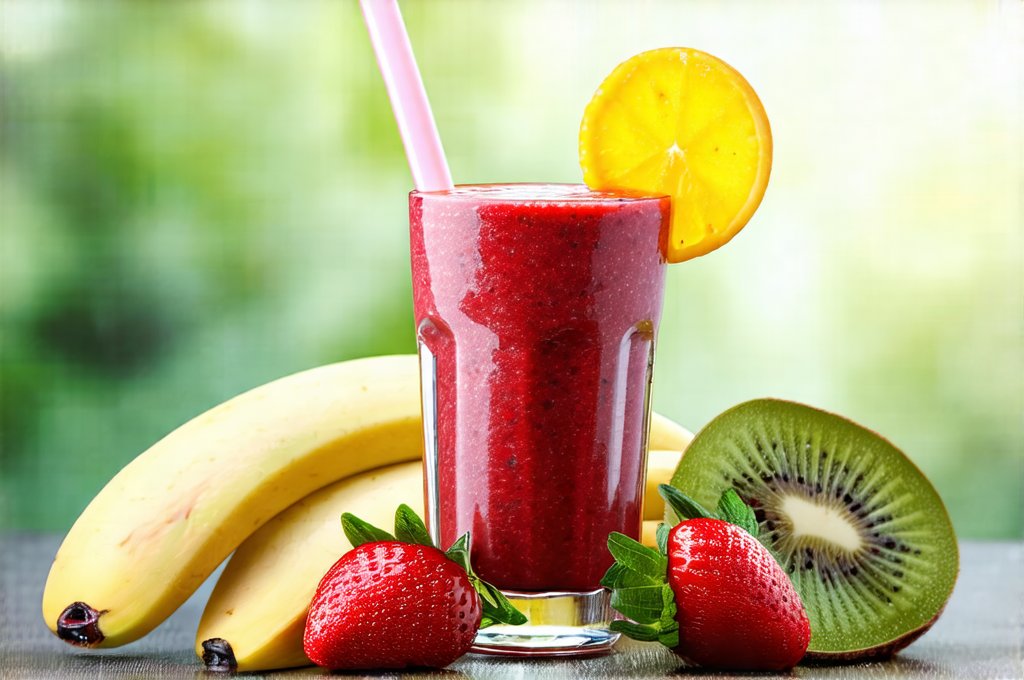Smoothies are often touted as quick, healthy meals – a convenient way to pack in nutrients and satisfy cravings. However, for individuals managing acid reflux (heartburn), enjoying a smoothie can be tricky. Many common smoothie ingredients, while nutritious for most, can exacerbate symptoms like burning sensations, bloating, or regurgitation. This is because certain foods trigger increased stomach acid production, relax the lower esophageal sphincter (LES – the muscle preventing stomach contents from flowing back up into the esophagus), or simply take longer to digest, increasing pressure on the system. The key isn’t necessarily avoiding smoothies entirely, but rather carefully selecting ingredients that are gentle on a reflux-sensitive digestive tract and building recipes with mindful consideration for potential triggers.
The good news is that it’s absolutely possible to create delicious and nourishing smoothies that won’t leave you reaching for antacids. This involves understanding the principles of a reflux-friendly diet – focusing on low-acid, easily digestible options – and creatively combining ingredients known for their soothing properties. We’ll explore which fruits, vegetables, liquids, and add-ins are generally well-tolerated by those with reflux, and how to build smoothies that prioritize comfort and digestive health. It’s important to remember everyone is different; what triggers one person may not affect another, so paying attention to your body’s individual responses is paramount.
Building a Reflux-Friendly Base: Fruits & Vegetables
The foundation of any smoothie lies in its fruits and vegetables. However, many popular choices are known reflux culprits. Citrus fruits (oranges, grapefruit, lemons), tomatoes, and even pineapple can be highly acidic and problematic for sensitive individuals. Instead, focus on lower-acid alternatives. Bananas, particularly ripe ones, are often well-tolerated and offer a creamy texture without adding acidity. Pears, especially when peeled, are another excellent option – they’re gentle on the stomach and provide fiber. Melons like honeydew and cantaloupe are also generally safe choices, but watermelon can sometimes cause issues for some individuals due to its higher water content potentially diluting digestive enzymes.
Vegetables should be chosen with similar care. Leafy greens like spinach and kale are nutritional powerhouses, but large quantities might trigger symptoms in some. Start with smaller amounts and assess your tolerance. Cucumber is incredibly mild and hydrating, making it a fantastic addition. Cooked sweet potato or butternut squash can add sweetness and creaminess without the acidity – cooking them breaks down fiber slightly, aiding digestion. Avoid cruciferous vegetables like broccoli and cauliflower initially; their sulfur compounds can sometimes contribute to gas and bloating. Prioritizing cooked vegetables over raw often makes them easier to digest. You may also want to consider a food journal to track your triggers.
Ultimately, building a reflux-friendly smoothie starts with mindful ingredient selection. It’s about swapping potentially triggering foods for gentler alternatives that still deliver flavor and nutritional value. Don’t be afraid to experiment, but always introduce new ingredients gradually and monitor your body’s response. Consider incorporating morning smoothies as part of a balanced diet.
Liquids & Add-Ins: Supporting Digestive Comfort
The liquid base of a smoothie plays a crucial role in its overall impact on reflux. Dairy milk can sometimes exacerbate symptoms due to lactose intolerance or the fat content increasing acid production. Almond milk, oat milk, or coconut water are often better tolerated alternatives – just be sure to choose unsweetened varieties to avoid added sugars which can also contribute to digestive discomfort. Water is always a safe and hydrating option, but it doesn’t offer much in terms of texture or flavor. Herbal teas like chamomile or ginger tea (cooled) can even be incorporated for their soothing properties, though ginger should be used cautiously as high amounts might trigger reflux in some.
Beyond the liquid base, add-ins can further enhance both nutrition and digestibility. Chia seeds and flaxseeds are excellent sources of fiber and omega-3 fatty acids but consume them with sufficient water to avoid constipation which can worsen reflux. A small amount of plain yogurt (if dairy is tolerated) or kefir can provide probiotics that support gut health, though again, assess individual tolerance. Avoid chocolate, coffee, carbonated beverages, and peppermint – all known triggers for acid reflux. A dash of turmeric may offer anti-inflammatory benefits, but it’s best to combine it with black pepper to enhance absorption. Choosing the best cooking oils is also important when preparing ingredients.
The Role of Protein in Reflux Management
Protein is essential for overall health, but certain protein sources can be problematic for those with reflux. Red meat and fried foods are generally off-limits due to their high fat content. Instead, opt for lean protein options that are easier to digest. Plant-based proteins like pea protein powder or hemp seeds are excellent choices – they’re gentle on the stomach and offer a complete amino acid profile. If using animal products, consider skinless chicken breast or white fish in small amounts.
It’s also important to be mindful of how you incorporate protein into your smoothie. Large quantities can slow down digestion and increase pressure in the stomach. Start with a smaller amount and gradually increase if tolerated. Combining protein with healthy fats (like avocado) can further aid digestion and absorption, but avoid high-fat sources like nuts or seeds initially. Properly digested protein helps maintain a healthy gut microbiome, which is crucial for preventing reflux. You might also find bone broth helpful in supporting gut health.
Fiber: Friend or Foe? Finding the Balance
Fiber is incredibly important for digestive health, but it’s a double-edged sword when it comes to reflux. While adequate fiber intake promotes regularity and prevents constipation (which can exacerbate symptoms), excessive fiber can also lead to bloating and gas, increasing pressure on the LES. The key lies in finding the right balance and choosing soluble fiber sources over insoluble ones.
Soluble fiber dissolves in water, forming a gel-like substance that slows down digestion and promotes satiety without causing significant gas or bloating. Oats, bananas, pears (peeled), and cooked sweet potato are all good sources of soluble fiber. Insoluble fiber, found in foods like wheat bran and some vegetables, doesn’t dissolve and can contribute to digestive discomfort. Start with small amounts of fiber-rich ingredients and gradually increase your intake as tolerated. Drinking plenty of water alongside your smoothie is essential for proper fiber digestion. Consider plant-based milks to aid in digestion.
Mindful Blending & Portion Control: Preventing Overload
Even with the most reflux-friendly ingredients, a poorly constructed or excessively large smoothie can trigger symptoms. The goal is to create a blend that’s easily digestible and doesn’t overwhelm the digestive system. Avoid overfilling your blender – this can lead to undigested food particles entering the stomach and triggering acid production. Blend thoroughly until smooth, ensuring there are no chunks of ingredients remaining.
Portion control is also crucial. Start with smaller smoothie sizes (8-12 ounces) and assess how you feel. Overeating, even healthy foods, can put pressure on the LES and increase the risk of reflux. Eating slowly and savoring your smoothie – rather than gulping it down quickly – can also aid digestion. Finally, avoid lying down immediately after consuming a smoothie; allow gravity to help keep stomach contents where they belong. Remember, consistency is key—monitor how different ingredients affect you over time and adjust your recipes accordingly to create smoothies that are both nourishing and comfortable for your reflux-sensitive stomach. Watch out for hidden ingredients too!


















